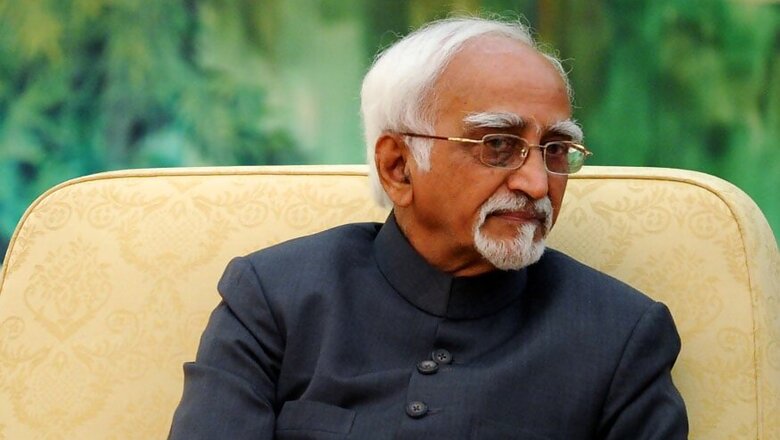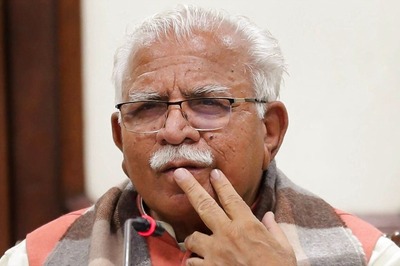
views
Vice President M. Hamid Ansari on Wednesday said upcoming technologies like manufacturing of robotics and improved cost-efficiency in renewable energy will reshape geopolitics.
"Every two years, for example, solar installation rates are doubling, and photovoltaic module costs are falling by about 20 percent," Ansari said while delivering an address on 'Some Thoughts on the World of Tomorrow' at Yerevan State University (Armenia) where he was awarded an honorary doctorate degree.
"By 2030, solar power will be able to provide 100 percent of today's energy needs; by 2035, it will seem almost free -- just as cell-phone calls are today," he added.
Speaking on the impact of the new energy forms on geopolitics, Ansari said: "Another surge of growth would spell the imminent extinction of the fossil-fuel industry and with it the geostrategic significance that hydrocarbon-rich states have enjoyed."
"This will have a cascading impact on the regional security architectures in many parts of the world as well as pan-global ramifications," he added.
Talking about the disruptive impact of digital manufacturing and robotics, the Vice President said: "Robots are also uniformly productive irrespective of geography. As manufacturing centers will shift closer to consumption centers, the geostrategic significance of trade routes and demand for transportation will also diminish."
On Tuesday, India and Armenia signed three agreements after Ansari held a bilateral meeting with Armenian Prime Minister Karen Karapetyan in Yerevan.
Ansari reached the Armenian capital on Monday. On Wednesday, he will leave for Poland on the second and last leg of his visit abroad.















Comments
0 comment